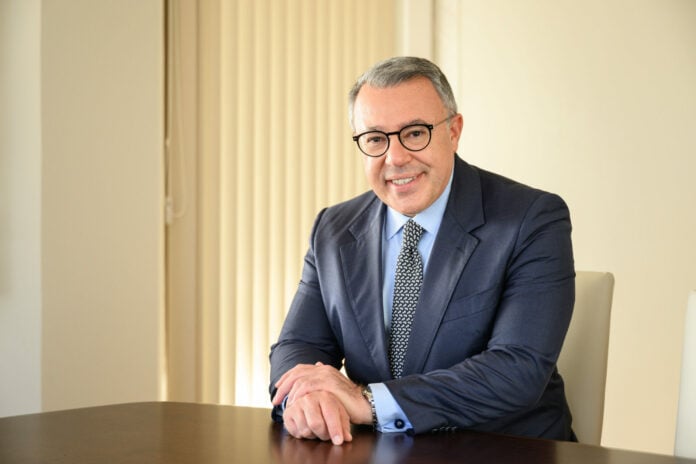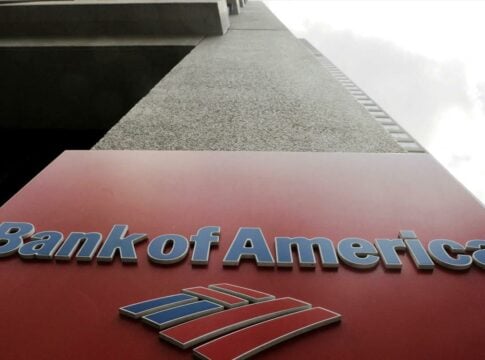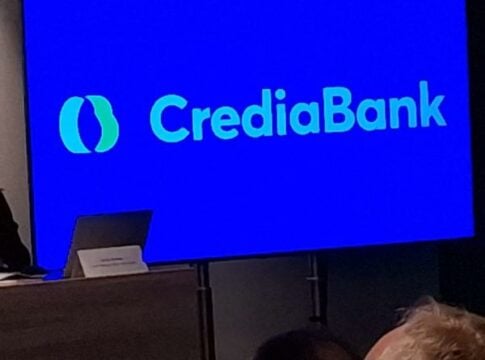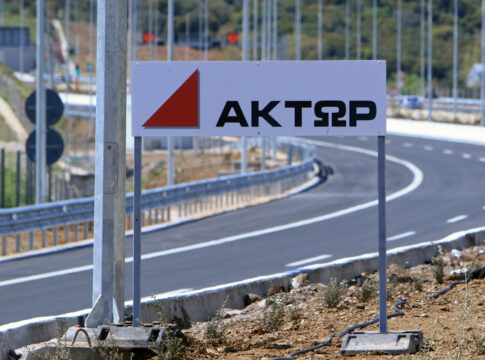For the first time in 15 years, a Greek bank – Alpha Bank – took the main stage of the Bank of America Financials CEO Conference in London, alongside the heads of leading European financial institutions.
Alpha Bank’s presence is not only a highlight for itself, but also an indication of Greece’s dynamic return to the European financial map, with Greek banks being recognized as a regular, attractive investment destination.
The Bank records the best performance in terms of its stock market dynamics worldwide, with strong results and disciplined execution.
At the same time, the increase in UniCredit’s participation to 26% constitutes a clear vote of confidence — both in the strategic plan and management of the Bank and in the prospects of the Greek economy.
In the context of the conference, which was attended by analysts, investors and high-ranking executives of the international banking industry, the Bank’s CEO Vasilis Psaltis referred, among other things, to the expansion of the strategic cooperation with UniCredit, Alpha Bank’s business development model as well as to the changes, opportunities and challenges the Greek financial system is called upon to face.
Vote of confidence from UniCredit
“UniCredit increased its stake in Alpha Bank to 26% in a move that reflects confidence in both the bank and the Greek economy. We are proud of what we have achieved so far and what we are achieving together,” said the bank’s CEO, adding that “this strategic partnership is already delivering tangible results and opens up new opportunities for Alpha Bank: access to 13 markets, synergies in asset management, structured products, transaction banking and international syndicated lending,” he added.
New business model
During the discussion, the CEO of Alpha Bank emphasized that the Group seeks to overcome the role of a classic commercial bank. With a presence in London and Luxembourg, it aims to internationalize its services in wealth management and corporate banking. The goal is to follow Greek entrepreneurs and investors with activity abroad and offer them services that they have so far found in international groups. “The collaboration with UniCredit functions as a power multiplier: it allows Alpha to maintain the character of a Greek bank with local knowledge, but with access and service capabilities at the level of a European champion,” Psaltis stated, describing this path as a transition to a “micro-universal bank” model, which combines local know-how with international access.
Acquisitions as a tool for strategic growth
Psaltis also emphasized that Alpha Bank has adopted a more active acquisition strategy, leveraging its capital adequacy. He clarified, however, that acquisitions are not an end in themselves; they are a tool to accelerate the bank’s strategy with discipline and a clear goal: better services for its customers. “The acquisition of AstroBank in Cyprus gave it a 10% market share and a strong position in an economy closely linked to Greece.
The absorption of Flexfin strengthened its presence in the financing of small and medium-sized enterprises, a crucial sector for the Greek economy. At the same time, the integration of AXIA Ventures into Alpha Finance creates a leading investment platform in Greece and Cyprus, aiming to cover capital markets and high-level advisory services. Finally, the collaboration with ELTA offers more than 1,000 additional service points, expanding access to areas with limited banking coverage,” he explained.
Corporate lending and bank credit
Vassilis Psaltis described the two dominant issues of corporate lending and mortgage credit as two inversely proportional dynamics.
As he said regarding business financing, domestic dynamics are strong as they are growing at rates above the European average, supported by both the Recovery Fund and private investments. In contrast, mortgage credit is stagnant. The problem is not demand but supply: it is estimated that there is a shortage of approximately 200,000 homes. State social housing programs are a positive first step, but the solution will only come with massive new construction and incentives for private investors.
High profitability and returns
The management remains committed to the target of 9% annual growth in earnings per share over the period 2024–2027, excluding share buybacks. Net interest income is expected to exceed 1.7 billion in 2026 and 1.8 billion in 2027.
“Our forecast of 1.8 billion euros in 2027 is secured and this is before incorporating any contribution from AstroBank or other M&A activities. The drivers are clear: continued loan growth, improving margins in the non-trading sector. We have managed our balance sheet with care and prudence, so that we can face any adverse conditions, and this means that our growth is resilient,” Psaltis stressed. On the returns to shareholders, he said that the bank is committed to a payout ratio of at least 50% for the three-year period 2025–2027, leaving open the possibility of higher returns through dividends or share buybacks.
“Aggressive” investment in technology
Asked about the competition in relation to fintechs, Psaltis said that in the Greek environment things are not so competitive, with the only exceptions being payments and retail banking. “However, Alpha is investing aggressively in digital channels and partnerships, wanting to meet the growing demand for speed and flexibility,” he said. The Bank’s CEO was accompanied by CFO Vassilis Kosmas and IR Director Iason Kepaptsoglou. The Alpha Bank delegation had, on the sidelines of the Conference, a series of meetings with over 70 executives from international investment companies.













